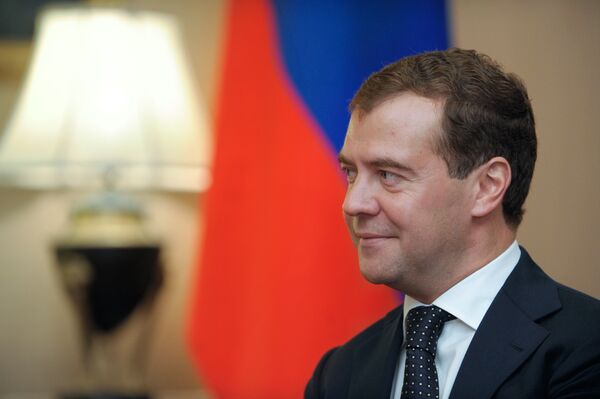MOSCOW, October 9 (RIA Novosti) - Russian President Dmitry Medvedev called on Friday on the United States to advance the process of strategic arms reduction.
"While dealing with non-proliferation, we must simultaneously deal with the limitation and reduction of strategic offensive potentials - both carriers and nuclear warheads," Medvedev said in an interview with Russia's Channel One to be broadcast on Sunday.
"Today we have the chance to advance this process. We will be dealing with this. And I call on our American partners to do the same," he said.
The president added that Russia and the United States also had a good chance of agreeing on a new strategic arms reduction treaty.
"There is definitely a chance for the agreement, since the new U.S. administration has demonstrated interest in this issue. This was not so with the previous administration, as it did not consider this issue a priority in its foreign policy," Medvedev said.
Medvedev and his U.S. counterpart Barack Obama agreed in July in Moscow on the outline of a deal to replace the 1991 Strategic Arms Reduction Treaty (START-1), which expires on December 5, including cutting their countries' nuclear arsenals to 1,500-1,675 operational warheads and delivery vehicles to 500-1,000.
"We have set our negotiators the task to come to an agreement in time... But both sides have to demonstrate wisdom and the desire to listen to each other, as well as an understanding of modern realities," the Russian president added.
The START-1 treaty obliges Russia and the U.S. to reduce nuclear warheads to 6,000 and their delivery vehicles to 1,600 each. In 2002, a follow-up agreement on strategic offensive arms reduction was concluded in Moscow. The document, known as the Moscow Treaty, envisioned cuts to 1,700-2,200 warheads by December 2012.




